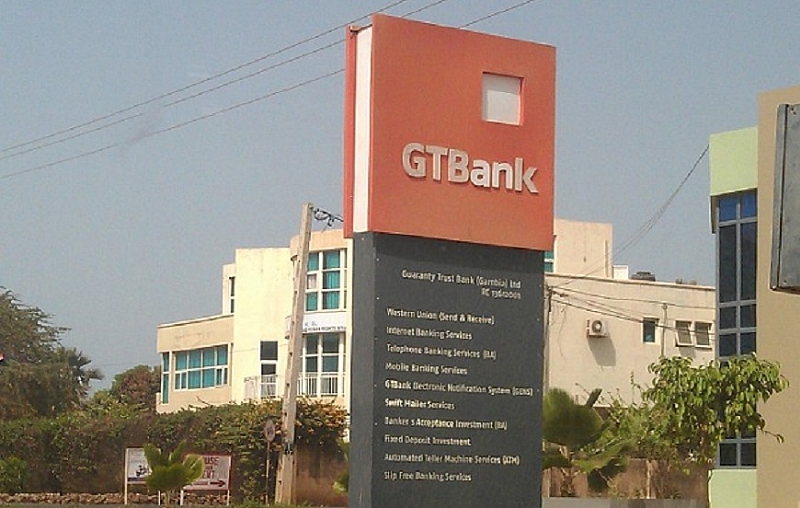Unlocking Opportunities: Africa Insurance Market
Africa’s insurance market is on the cusp of significant transformation, driven by a combination of economic growth, increasing urbanization, and a burgeoning middle class. The continent’s insurance penetration rate remains relatively low compared to global standards, with many countries reporting figures below 3%. This presents a unique opportunity for growth, as the demand for insurance products is expected to rise in tandem with economic development.
According to the African Insurance Organization, the insurance market in Africa is projected to grow at a compound annual growth rate (CAGR) of around 10% over the next decade. This growth is fueled by factors such as rising disposable incomes, increased awareness of risk management, and a growing need for protection against unforeseen events. Moreover, the demographic trends in Africa are favorable for the insurance sector.
With a population exceeding 1.3 billion and a median age of just 19.7 years, there is a youthful demographic that is increasingly seeking financial security and stability. As more individuals enter the workforce and accumulate wealth, the demand for various insurance products—ranging from life and health insurance to property and casualty coverage—is expected to surge. Additionally, urbanization is leading to the development of new markets and customer segments, particularly in cities where infrastructure and economic activities are expanding rapidly.
This urban shift not only increases the potential customer base but also creates new risks that necessitate insurance solutions. Here is the link to book your next Flight.
While the growth potential of Africa’s insurance market is promising, it is not without its challenges. One of the primary obstacles is the lack of awareness and understanding of insurance products among the general population. Many individuals view insurance as an unnecessary expense rather than a vital component of financial planning.
This perception is compounded by cultural beliefs and practices that may prioritize immediate needs over long-term financial security. Consequently, insurance companies face the daunting task of educating potential customers about the benefits of insurance and how it can serve as a safety net against life’s uncertainties. In addition to awareness issues, regulatory challenges also pose significant hurdles for insurers operating in Africa.
The regulatory landscape varies widely across the continent, with some countries having well-established frameworks while others lack comprehensive regulations. This inconsistency can create confusion for insurers trying to navigate compliance requirements and can deter foreign investment in local markets. However, these challenges also present opportunities for innovative companies willing to adapt their strategies.
By developing targeted marketing campaigns that resonate with local cultures and leveraging technology to streamline operations, insurers can carve out a niche in this evolving market.

Technology is playing a pivotal role in reshaping the insurance landscape in Africa, offering innovative solutions that enhance access to insurance products. The rise of mobile technology has been particularly transformative, enabling insurers to reach underserved populations in remote areas where traditional distribution channels may be limited. Mobile money platforms, such as M-Pesa in Kenya, have revolutionized financial transactions and have paved the way for microinsurance products that cater to low-income individuals.
These products often feature lower premiums and simplified claims processes, making them more accessible to those who may have previously been excluded from the formal insurance market. Furthermore, advancements in data analytics and artificial intelligence are allowing insurers to better understand customer needs and tailor their offerings accordingly. By analyzing data from various sources, including social media and mobile usage patterns, companies can identify emerging trends and develop products that align with consumer preferences.
For instance, telematics-based insurance policies that monitor driving behavior are gaining traction in urban areas, providing personalized premiums based on individual risk profiles. This data-driven approach not only enhances customer engagement but also improves underwriting accuracy, ultimately leading to more sustainable business models.
| Country | Regulatory Environment | Impact on Insurance Market |
|---|---|---|
| South Africa | Well-established regulatory framework | Stable and competitive insurance market |
| Nigeria | Evolution of regulatory policies | Growth of insurance industry with increased compliance |
| Kenya | Regulatory reforms to enhance transparency | Increased consumer trust and market expansion |
| Ghana | Stringent regulatory requirements | Improved financial stability and risk management |
The regulatory environment in Africa significantly influences the growth and stability of the insurance market. Each country has its own set of regulations governing insurance practices, which can either facilitate or hinder market development. In nations with robust regulatory frameworks, such as South Africa and Kenya, insurers benefit from clear guidelines that promote transparency and consumer protection.
These regulations often encourage competition among insurers, leading to better products and services for consumers. Conversely, in countries where regulatory oversight is weak or inconsistent, insurers may face challenges related to compliance and operational risks. The lack of standardized regulations can create an uneven playing field, where some companies may engage in unethical practices that undermine consumer trust.
To address these issues, many African governments are working towards strengthening their regulatory frameworks by adopting international best practices and enhancing collaboration with industry stakeholders. This proactive approach not only fosters a more stable insurance environment but also attracts foreign investment, which is crucial for expanding the market.
As the African insurance market evolves, there is a growing emphasis on developing innovative products that cater specifically to local needs. Insurers are increasingly recognizing that one-size-fits-all solutions are inadequate in addressing the diverse challenges faced by consumers across different regions. For example, agricultural insurance products have gained popularity among farmers who are vulnerable to climate-related risks such as droughts or floods.
These products often include features like index-based payouts that trigger compensation based on weather data rather than traditional loss assessments. Additionally, health insurance offerings are being reimagined to accommodate the unique healthcare landscape in Africa. With many individuals relying on informal healthcare providers or traditional medicine, insurers are creating hybrid models that integrate both formal and informal care options.
This approach not only broadens access to healthcare services but also encourages individuals to seek preventive care, ultimately leading to healthier populations. By tailoring products to meet local demands, insurers can enhance customer satisfaction while simultaneously driving growth in their portfolios.

Building trust is paramount for the success of the insurance industry in Africa. Given the historical skepticism surrounding financial institutions, insurers must prioritize transparency and ethical practices to foster confidence among potential customers. Establishing a strong brand reputation through consistent communication and reliable service delivery can significantly influence consumer perceptions.
Insurers that actively engage with their communities through educational initiatives and outreach programs can demystify insurance concepts and highlight its value as a protective measure against risks. Awareness campaigns play a crucial role in this trust-building process. By leveraging various media channels—such as radio, television, social media, and community events—insurers can effectively disseminate information about their products and services.
Collaborating with local influencers or community leaders can further amplify these efforts by lending credibility to the messaging. As consumers become more informed about their options, they are more likely to view insurance as an essential component of their financial planning rather than an unnecessary expense.
Strategic partnerships are emerging as a key driver of growth within Africa’s insurance industry. Insurers are increasingly collaborating with fintech companies, mobile network operators, and other stakeholders to enhance distribution channels and improve customer engagement. For instance, partnerships between insurers and mobile money providers have facilitated seamless premium payments and claims processing through mobile platforms.
This synergy not only expands access to insurance but also streamlines operations for insurers. Moreover, collaborations with non-governmental organizations (NGOs) and community-based organizations can help insurers reach marginalized populations that may otherwise remain uninsured. By working together on initiatives aimed at financial literacy and risk management education, these partnerships can create a more inclusive insurance ecosystem.
Such collaborations not only benefit insurers by expanding their customer base but also contribute to broader economic development goals by promoting financial inclusion.
The future outlook for Africa’s insurance market appears optimistic as various factors converge to create an environment ripe for growth. With increasing economic stability across many African nations and a growing recognition of the importance of risk management, more individuals and businesses are likely to seek out insurance solutions. The ongoing digital transformation will continue to play a pivotal role in shaping how products are delivered and consumed, making it easier for consumers to access coverage tailored to their needs.
Furthermore, as climate change poses new risks across the continent, there will be an increasing demand for innovative insurance solutions that address environmental challenges. Insurers that proactively develop products aimed at mitigating climate-related risks will be well-positioned to capture market share while contributing positively to sustainable development efforts. Overall, while challenges remain, the combination of technological advancements, regulatory improvements, and evolving consumer preferences suggests that Africa’s insurance market is poised for significant growth in the coming years.
If you are considering traveling to Africa for a safari adventure, you may also want to look into getting travel insurance to protect yourself and your belongings. According to African Sahara, some of the top-rated African safari countries include Tanzania, Kenya, and South Africa. Having insurance can provide peace of mind in case of any unexpected events during your trip. Additionally, if you plan to visit Isla Mauritia off the southern coast of Africa, as mentioned in another article on African Sahara, insurance can also be beneficial for that journey.











